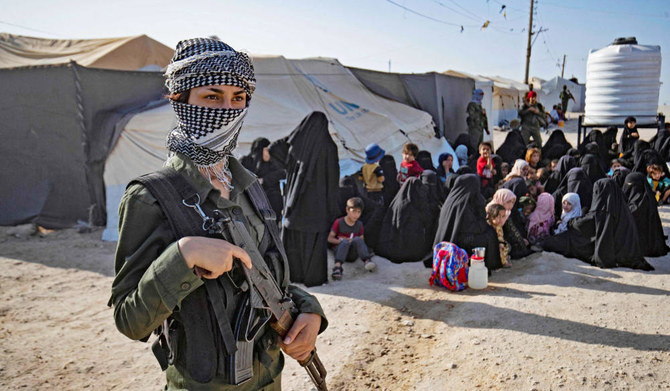BEIRUT: Fadi Al-Hassan, director-general of Lebanon’s civil aviation authority, said on Monday that “Beirut’s Rafic Hariri International Airport welcomed 11,700 visitors in one day,” and that “the total number of arrivals to date in December has reached about 220,000.”
Al-Hassan described the figures as “an important achievement compared with the previous years.”
Lebanon is trying to recover from an expanded, destructive Israeli war that started last October against Hezbollah and ended about a month ago under a conditional agreement that provides for the Lebanese army’s deployment in southern Lebanon.
Meanwhile, the Israeli forces, which must completely withdraw from the areas they invaded in the south within a period of 60 days pursuant to the agreement, continue to detonate and bulldoze houses, evacuating only a few areas.
The Israeli army carried out a huge demolition operation in Taybeh, Marjayoun, after bulldozing houses in Taybeh, Mays Al-Jabal, Khiam, Kfarkila and Chamaa.
Most of the arrivals in Lebanon are expatriates who came to spend the holidays with their families, as well as Syrians using Beirut’s airport to return to Syria.
Lebanon is preparing to welcome the new year, while living two separate realities.
In Beirut’s southern suburbs, littered with the rubble of flattened buildings, dozens of “for sale” signs are displayed on the balconies of several buildings that survived the war.
Nisrine, who came back from Germany to check on her mother in Burj Al-Barajneh, told Arab News: “What we saw on the screen is different than reality. The destruction here is scary. The suburb is gloomy and no longer looks like itself.
“Nights are horrific,” she added. “People are tired and worried, the cost of rebuilding what was destroyed is huge, and non-Hezbollah partisans complain of the absence of financial aid to help fix the broken windows at least.”
On the other hand, the areas not affected by war face increased road traffic, with holiday decorations taking over the streets, restaurants and shops.
Therese, who runs a pub with her children in Badaro, hoped “that the situation would get better in the coming new year, and that the 2024 war would be the country’s last.”
She said that “the whole country was affected by what happened in the southern suburbs, the south, and Bekaa. People want to go on with their lives, and we try to be a beacon of hope for them to reduce the weight of the days they went through.”
Security agencies are taking precautions, covering all expected tourist spots in Lebanon.
Minister of Interior Bassam Malawi, and the director-general of the internal security forces, Maj. Gen. Imad Othman, will personally supervise the launch of security patrols, with the event to be broadcast live on TV channels.
Civil aviation’s Al-Hassan said that “Emirati, French, and German airlines, as well as other companies that have suspended flights to Lebanon during the war, could possibly resume their flight schedule to Lebanon in the next 10 days,” adding that “other companies have already resumed their activity with a limited number of flights to Lebanon.”
He expected “the organization of flights to be further improved next month.”
In other news, a parliamentary session is expected to take place on Jan. 9 to elect a president — a position that has been vacant for 26 months due to political disputes between Hezbollah and its allies on one hand, and its opponents on the other, as to the president’s identity.
With nine days remaining until the session, the identity of the candidate with the highest chances of winning is still unknown. It is also unclear whether the quorum will be met, or whether any political party would be willing to compromise.
Despite Hezbollah’s struggle with the rubble removal, compensation and reconstruction file, the party considered, according to its head of Arab and International Relations, Ammar Moussawi, that “some fools and idiots think that the resistance was defeated and written off.”
He added: “We tell them that as long as our hearts are beating, the resistance will remain. Dreaming of a Lebanon without the resistance is wishful thinking.”
Hezbollah parliament MP Hassan Fadlallah said that “the resistance’s firmness, and the political effort led by Parliament Speaker Nabih Berri, in full coordination with Hezbollah’s leadership, are what led to the ceasefire agreement, which in turn forced the enemy to withdraw within a 60-day period from the border area.”
He added that “the agreement didn’t allow the enemy to carry out any violations and hostilities on Lebanese territory and in the southern area and border villages.”
Fadlallah believed that “besides the internal political divisions and conflicts, confronting the Israeli hostilities against our country should be part of a responsible national stance, where every party assumes its responsibilities, be it the state, the official authorities or the political forces.”
He continued: “This cause must concern all the Lebanese. The south is part of our country, and everyone should be involved in defending and protecting the country’s sovereignty. This requires a national stance.”
He emphasized that “the only way to confront this enemy is through the resistance’s weapons and the people-army-resistance equation.”
On the Israeli side, Israel’s Minister of Defense Israel Katz said that “every dollar denied to Hezbollah is a step closer toward weakening this organization. We will block Hezbollah’s attempts to recover.”
Katz said: “The long arm of Israel will act in every way to ensure the safety of our citizens, and we are working on all fronts to dry up Hezbollah’s sources of funding as it attempts to rebuild its capabilities.”
























